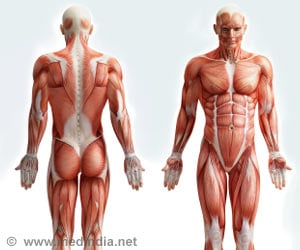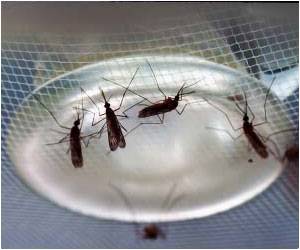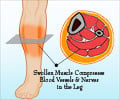New study conducted by scientists finds an association between muscle damage and cerebral malaria.

The researchers also found proteins that were specific to the two most deadly complicated malaria syndromes in children, namely severe malaria anemia and cerebral malaria. For both, combinations of proteins, so-called "signatures", could identify the specific syndrome with high accuracy.
For cerebral malaria, the researchers found that a group of muscle-specific proteins was present in the children's blood, suggesting that muscle cells are damaged. At least some of that damage might be associated with coma, which occurs in cerebral malaria but also in other diseases like meningitis.
The researchers conclude that their study could "provide key elements toward the discovery of distinct mechanisms in the human response to malaria infection between the two most fatal syndromes of childhood malaria" and that muscle-specific proteins in plasma might be "potential indicators of cerebral malaria".
Source-Eurekalert













